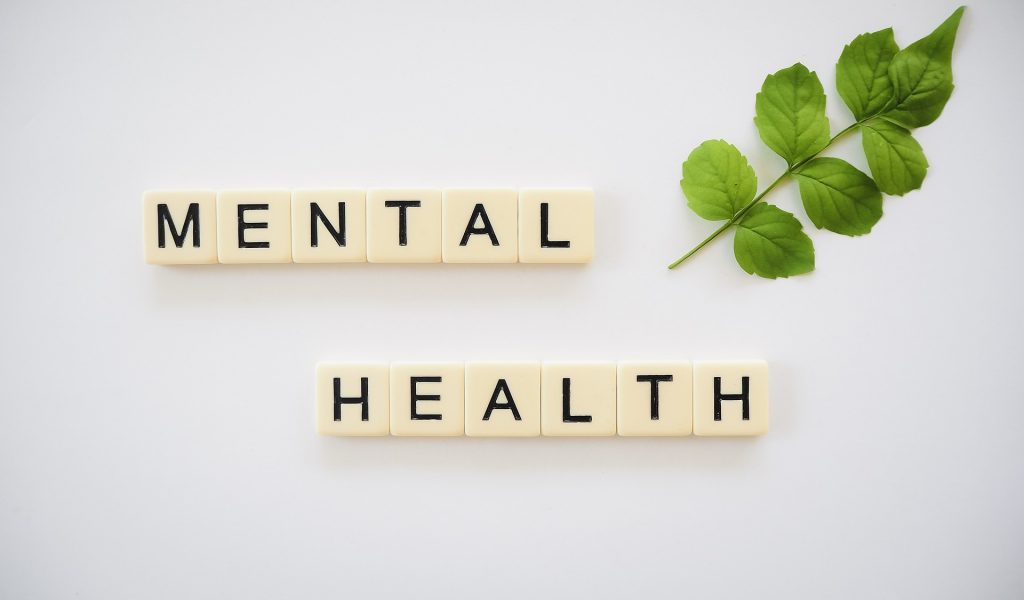
What is Mental Health?
Mental health is a state of well-being in which an individual realizes his or her own abilities, can cope with the normal stresses of life, can work productively, and is able to make a contribution to his or her community.
Mental health has great effects on how we think, feel, and act. It also helps determine how we handle stress, relate to others, and make choices. Mental health is important at every stage of life, from childhood through adulthood. Mental health is the foundation for individual well-being and effective functioning in everyday life.
What is Mental Illness?
Mental illness is a condition that affects a person’s thinking, feeling, behavior, or mood. These conditions deeply impact day-to-day living and the ability to relate to others. Mental health conditions are far more common than most people think, this is because most people don’t like to, or are scared to, talk about them.
Benefits of Good Mental Health
Mental and physical health are equally important components of overall health. When we are mentally healthy, we enjoy our life and environment, and the people in it. We can be creative, learn, try new things, and take risks. We are better able to cope with difficult times in our personal and professional lives. We feel the sadness and anger that can come with the death of a loved one, a job loss or relationship problems, a stressful job or work environment, and other difficult life events.
Being in a good state of mental health has a lot of benefits to us and to those around us and the community in general. Individuals who are healthy mentally will of course have the following among other benefits.
- In a position to realize their full potential.
- Able to cope with the stresses of life
- Very productive at work.
- Reduced anxiety.
- Improved moods.
- Clearer thinking.
- A greater sense of calm or inner peace.
- Increased self-esteem.
- Reduced risk of depression.
- Improvements in relationships and interactions.
- Make meaningful contributions to their communities
Common Signs and Symptoms of Mental Illness
Many people especially in the current generation have mental health concerns from time to time. A mental health concern becomes a mental illness when the ongoing signs and symptoms cause frequent stress and affect your ability to function and handling things.
Some of these symptoms include but not limited to:
- Withdrawals. Well, we all need quiet time occasionally, but withdrawing from life, especially when it is a major change, could indicate a mental health issue. If a friend or loved one is regularly isolating themselves, they may have depression, bipolar, a psychotic disorder, or another mental health issue.
- Eating or sleeping disorders. Fluctuating weight or rapid weight loss could be one of the warning signs of a mental illness, such as depression or an eating disorder. Persisting changes to a person’s sleep patterns could be a symptom of a mental illness.
- Feeling of guilt. Thoughts like ‘I’m a failure’, ‘It’s my fault’ or ‘I’m worthless’ are all possible signs of a mental health issue, such as depression. Your friend or loved one may need help if they’re frequently criticizing or blaming themselves.
- Frequent nightmares
- Having low or no energy.
- Feeling numb or like nothing matters.
- Having unexplained aches and pains.
- Feeling hopeless or helpless.
- Smoking, drinking, or abusing drugs.
- Feeling unusually confused, forgetful, on edge, angry, upset, worried, or scared of almost everything.
- Yelling or fighting with family and friends.
- Experiencing severe mood swings that cause problems in relationships.
- Having persistent thoughts and memories that you can’t get out of your head.
- Hearing voices or believing things that are not even close to the truth.
- Thinking of harming yourself or others.
- Inability to perform daily tasks even those that seem to be simple.
Common Causes of Mental Illness
There is no single cause for mental illness. A number of factors can contribute to risk for mental illness, such as
- Unhealthy habits: like not getting enough sleep, or not eating.
- Social isolation or loneliness.
- Early life environment: negative childhood experiences such as abuse or neglect can increase the risk of some mental illnesses.
- Discrimination and stigma.
- Personality factors: some traits such as perfectionism or low self-esteem can increase the risk of depression or anxiety.
- Losing a loved one.
- Severe or long-term stress.
- Brain chemistry. Mental illness involves an imbalance of natural chemicals in your brain and your body.
- Long-term physical health condition.
- Unemployment or losing your job
- Genetics. Mental illness often runs in the family.
- Homelessness or poor housing.
- Significant trauma emerging from a life event, such as military combat, being involved in a serious incident in which you feared for your life, or being the victim of a violent crime.
Helping a loved one
If your loved one shows signs of mental illness, have an open and honest discussion with him or her about your concerns. You may not be able to force someone to get professional care, but you can offer encouragement and support. Learn more about mental health. This allows us to provide helpful support to those affected in our families and communities.
Show individuals respect and acceptance. This helps in removing a significant barrier to successfully coping with their illness. Having people see you as an individual and not as your illness can make the biggest difference for someone who is struggling with their mental health.
You can also help your loved one find a qualified mental health professional and make an appointment. You may even be able to go along to the appointment.
If your loved one has done self-harm or is considering doing so, take the person to the hospital or call for emergency help.